×
Save 20% On Your Purchase!
Use code SAVE20 at checkout to save on your purchase today from my Herbal Shop!
×
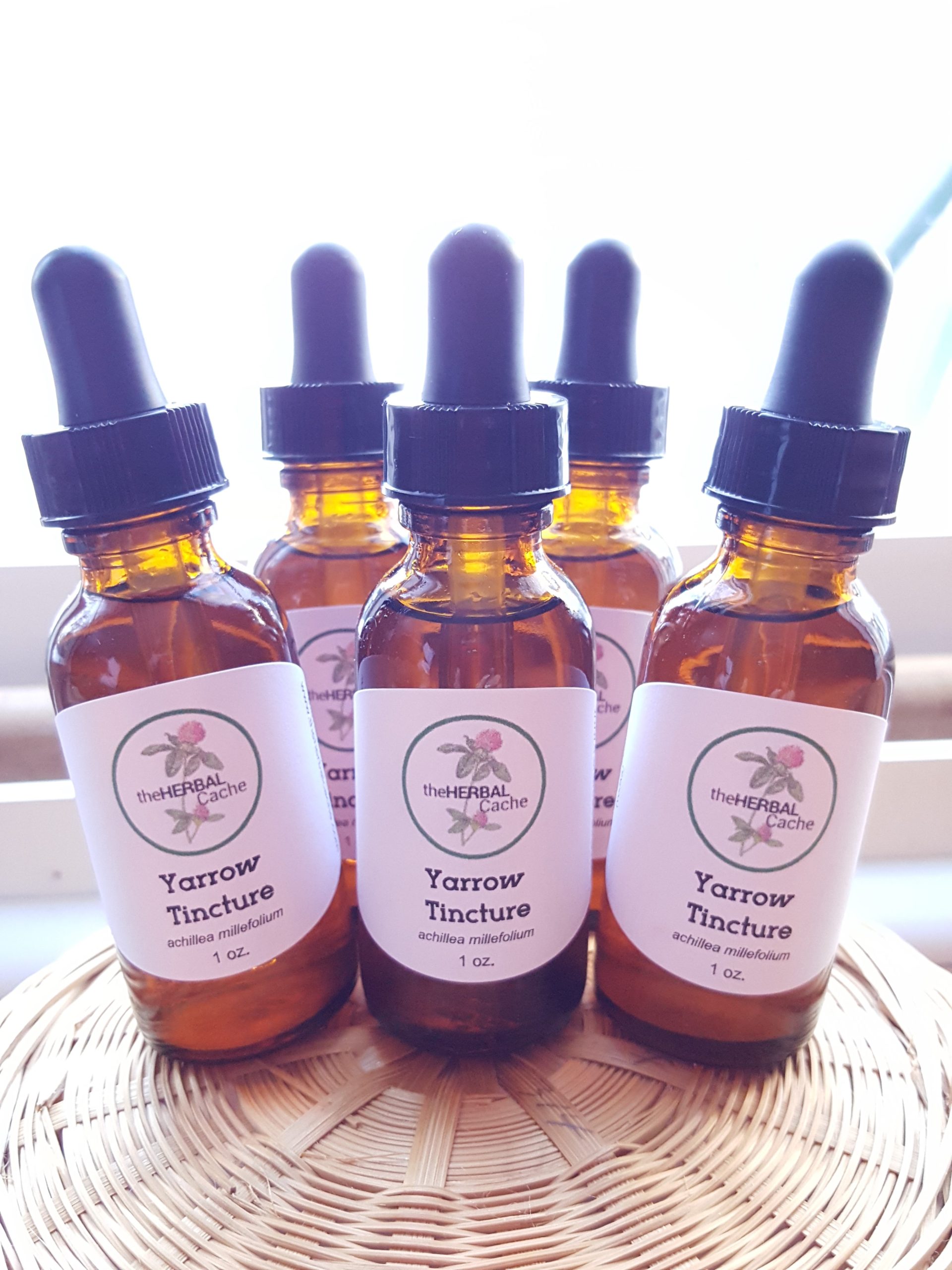

This is part three in my blog post series of “Myths in Herbal Medicine”. You can find the links to the other posts at the end of this post.
I feel that many people think that using herbal medicine can be expensive because it is natural. I guess that would depend on how you approach herbal medicine and what you are buying. But it doesn’t have to be expensive. And by this, I don’t mean that you need to get the cheap stuff either.
For the purpose of this post, by herbal medicine, I mean you can use herbs as food or make them into remedies, such as tinctures or oxymels. Because Hippocrates did say “Let food by thy medicine”.
In this post, I’ll show you a number of ways to get herbs for medicine and food, that won’t empty your wallet. Hopefully, you will find one or more that will suit your needs.
Purchasing herbs in larger quantities at a time can save you money. Some retailers may sell at a wholesale cost if you purchase a minimum amount. You may be able to save 30-70% getting them in bulk.
You will need space to store them. A cool, dark place is best. You can also share with others.
If you tend to store them, there are a number of safe ways to preserve them till use. Airsealing them in bags is how I do it. There are also buckets or pails you can purchase as well, for food grade items.
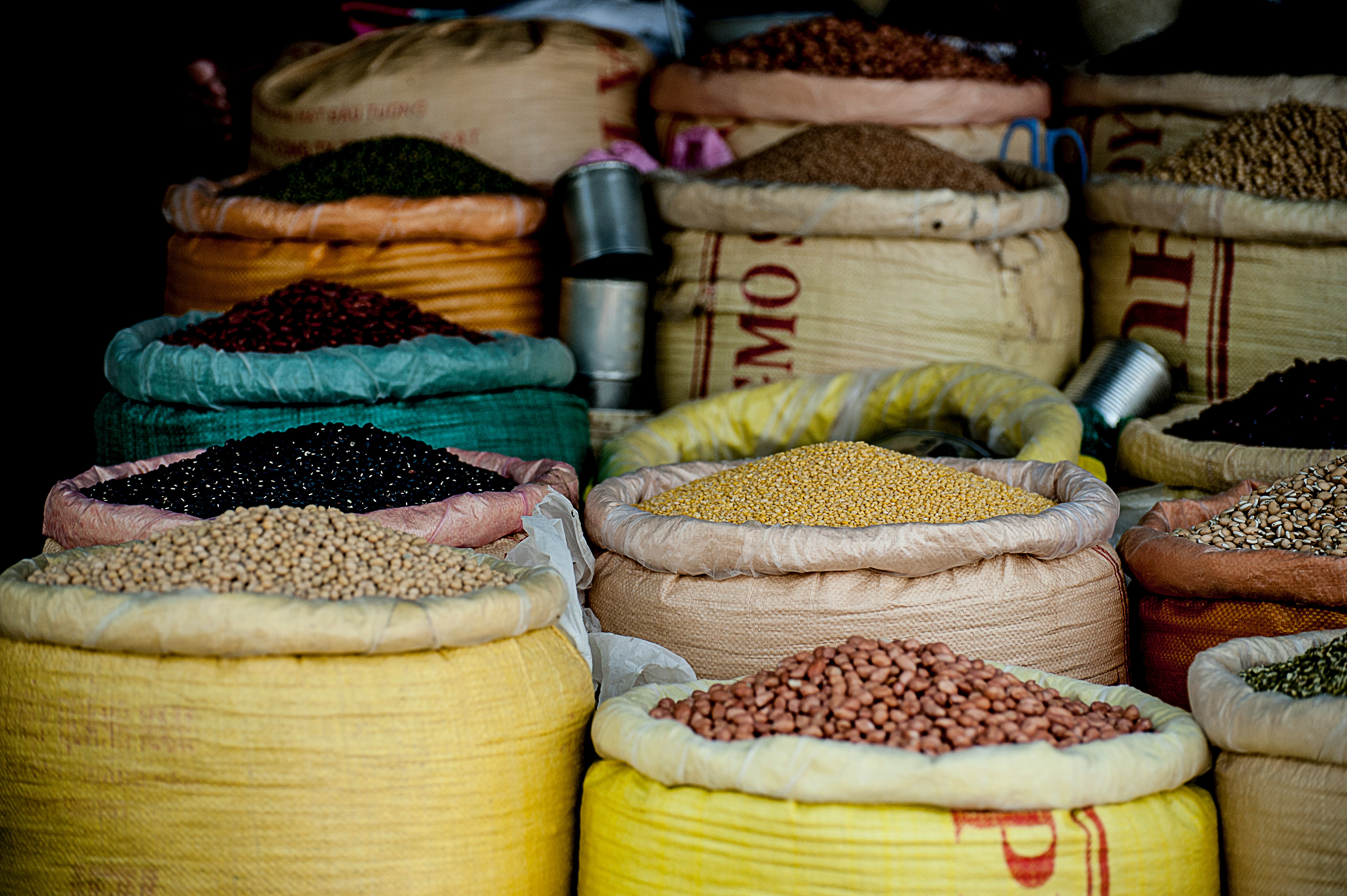
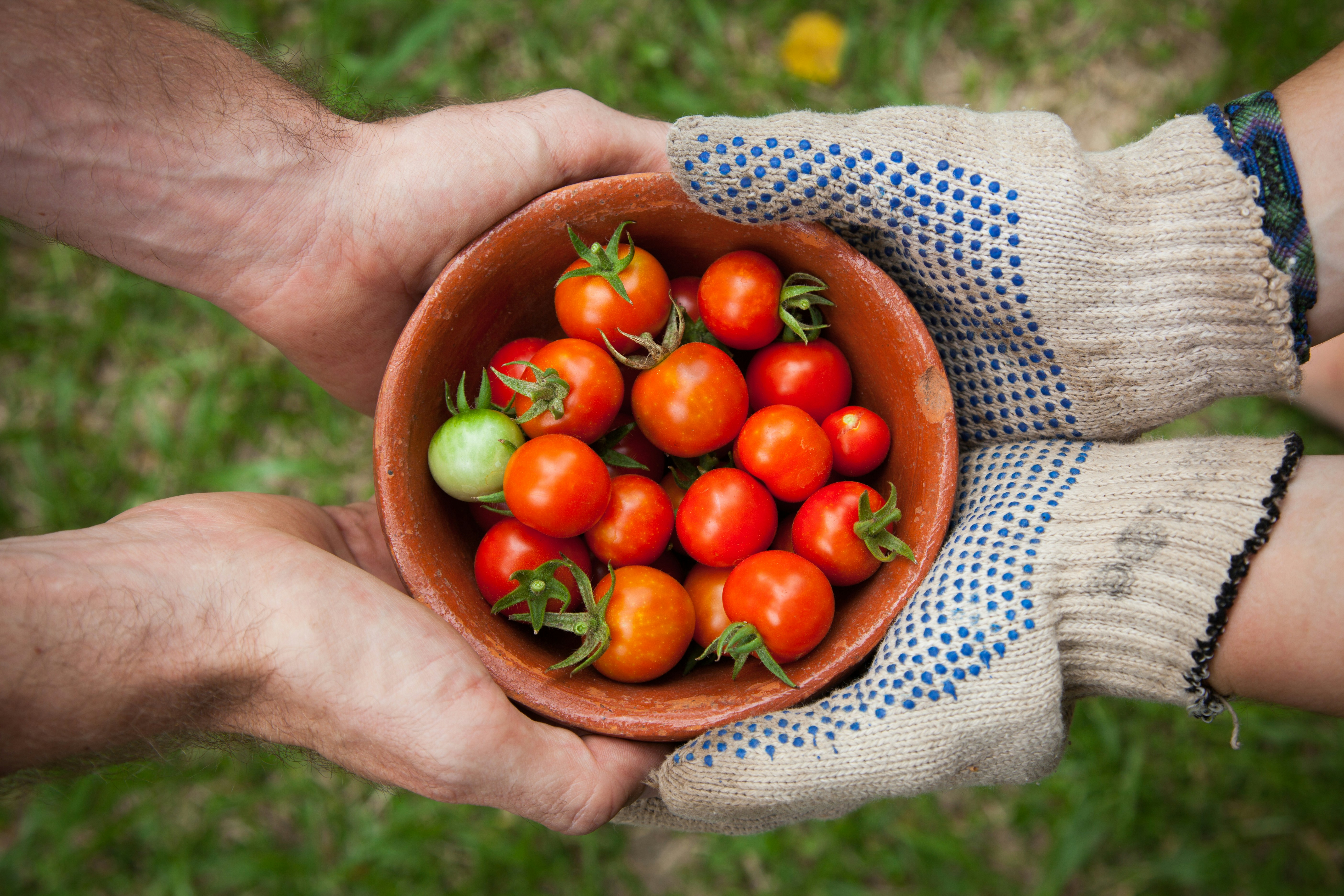
As I mentioned in the previous segment, sharing or partnering with others is another way to save.
Everyone likes saving money. So check with family and friends to see who, if anyone, is already buying the same herbs as you, and see if they want to split a purchase.
By dividing up the cost of herbs, it is not only cheaper, but also lets you use the herbs in a more timely manner. This may mean buying more frequently, but the herbs will be fresher. And who doesn’t like fresh herbs!
I know it is a little more time consuming, but keeping an eye out for sales and coupons can help save you money.
Holidays and company anniversaries are the perfect time to watch for sales.
Signing up for online herbal newsletters will sometimes offer a discount on a one-time purchase. Newsletters also can keep you posted as to when sales are coming up.
I like to utilize sales, even if I don’t need the herb at that time because it saves me money in the long run and I’m not paying full price.

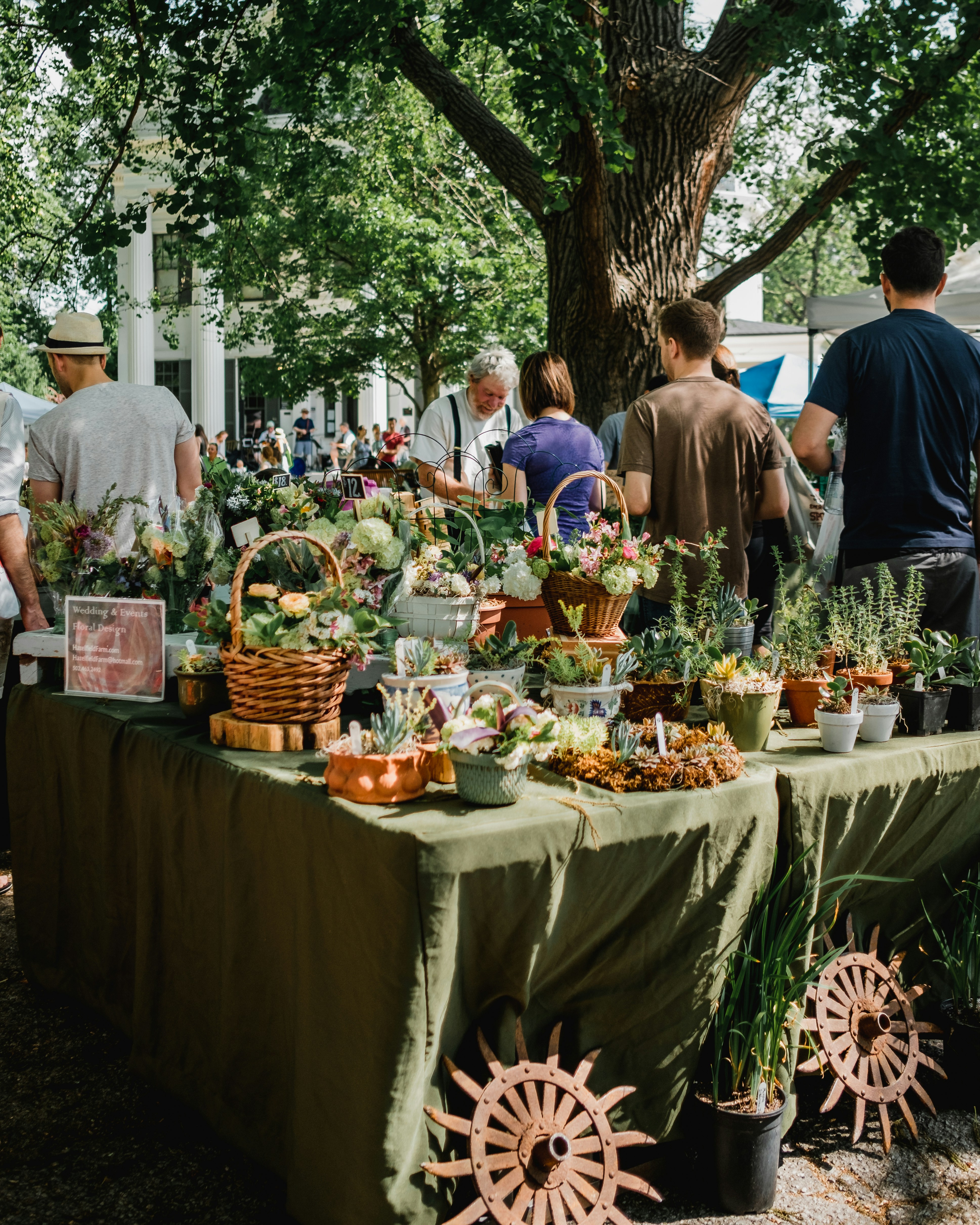
Supporting local is always a good way to find herbs to purchase and farmers markets make that very easy. Most cities and towns host farmers markets during the summer, and some even have them all year long.
I am a little biased here, on recommending farmers markets because I started my herbal business at the local farmers market in town. I sold my herbal products and got to know my weekly customers.
Something to keep in mind, some vendors at farmers markets will barter. So don’t be afraid to “make an offer” for herbs or herbal products you would like to purchase. But make sure to present a reasonable offer. You don’t want to upset a vendor with a ridiculous offer.
By shopping at farmers markets, you also get to know the person selling the herbs, can find out where the herbs are from, how they are harvested, etc. I feel this is one of the best ways to get your herbs because you get to know your herbs, unless you forage or grow your herbs.
I love foraging for a few reasons. First, the herbs, or maybe weeds for some, are free! Of course, this takes time and you need to know where to find the herbs.
Another reason I love foraging is because it gets you outside and into nature. Get your exercise and Vitamin D at the same time!
If you decide to forage, two things to keep in mind. Make sure you know how to identify the plants! There are some that have look-alikes, but can be deadly. Secondly, if its not your land, make sure you get permission to forage.
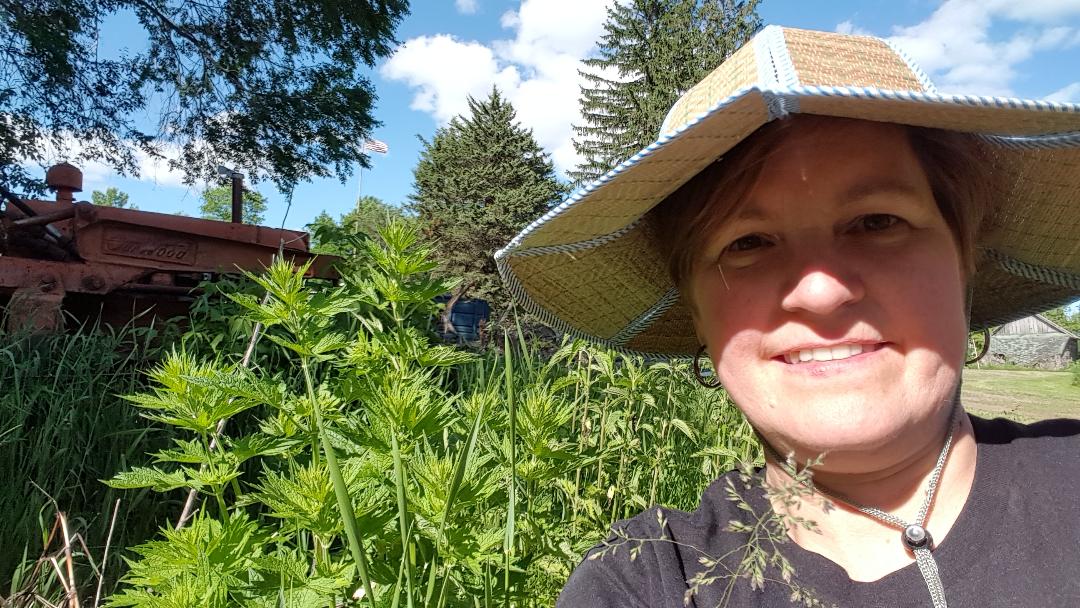
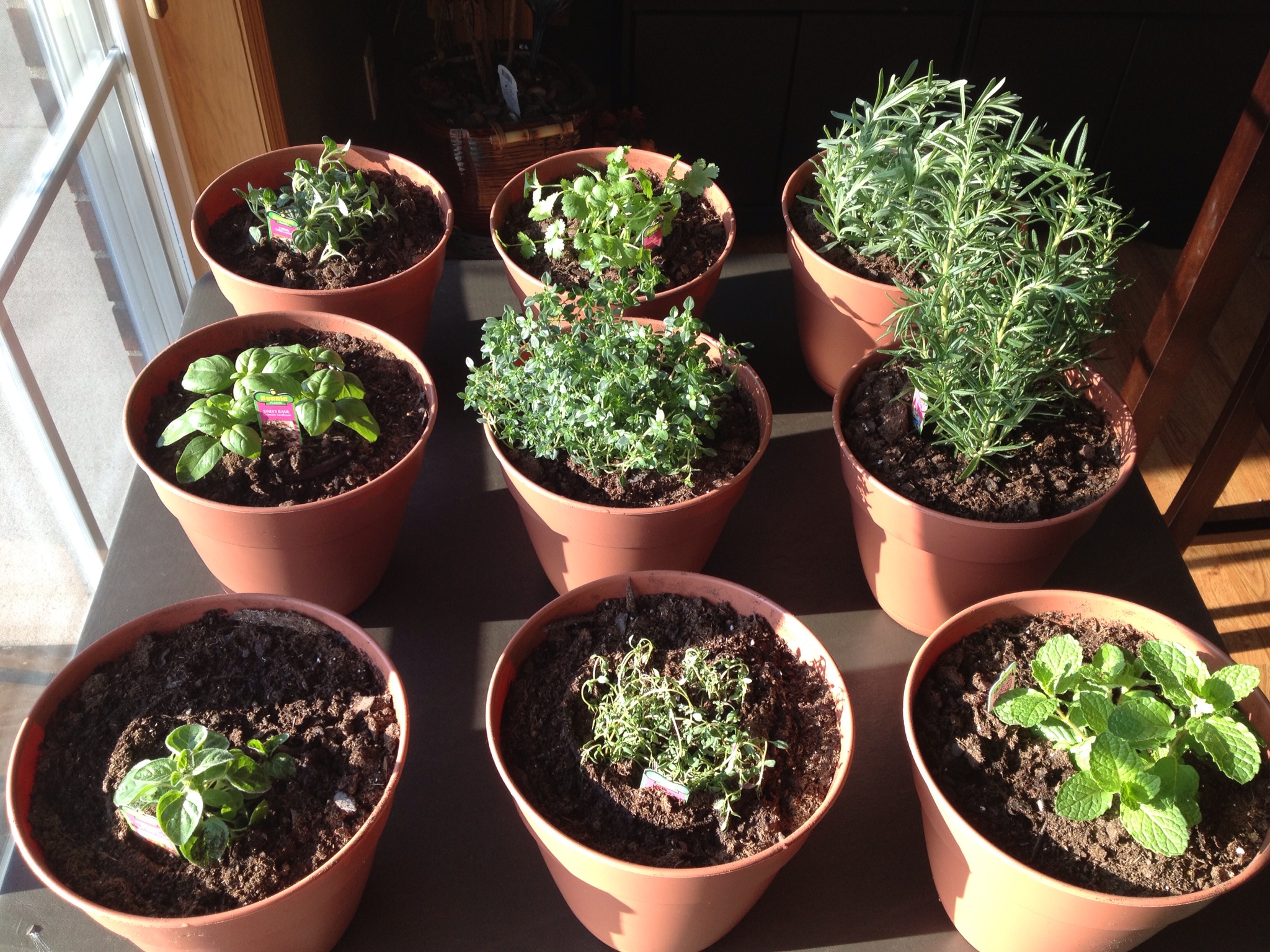
If you enjoy gardening, like me, try growing herbs. I love to watch plants grow and develop, whether in a garden or a patio pot.
Growing your own herbs holds many benefits. First, you can grow the herbs that you want to use. Second, you know exactly how they are grown and where they are coming from. Third, growing your own herbs can be relaxing and fulfilling.
And you don’t need a lot of space. Get a few pots or find a community garden. Don’t let space stop you.
As you can see, there are a number of ways that you can get herbs without breaking the bank. By partnering with others or growing your own, not only will you save money, but it will also give you a sense of accomplishment.
I hope you will find one or more of these ways to get the herbs you want into your herbal pharmacy.
Read my other blog posts in this series of “Myths in Herbal Medicine” and let me know what you think.
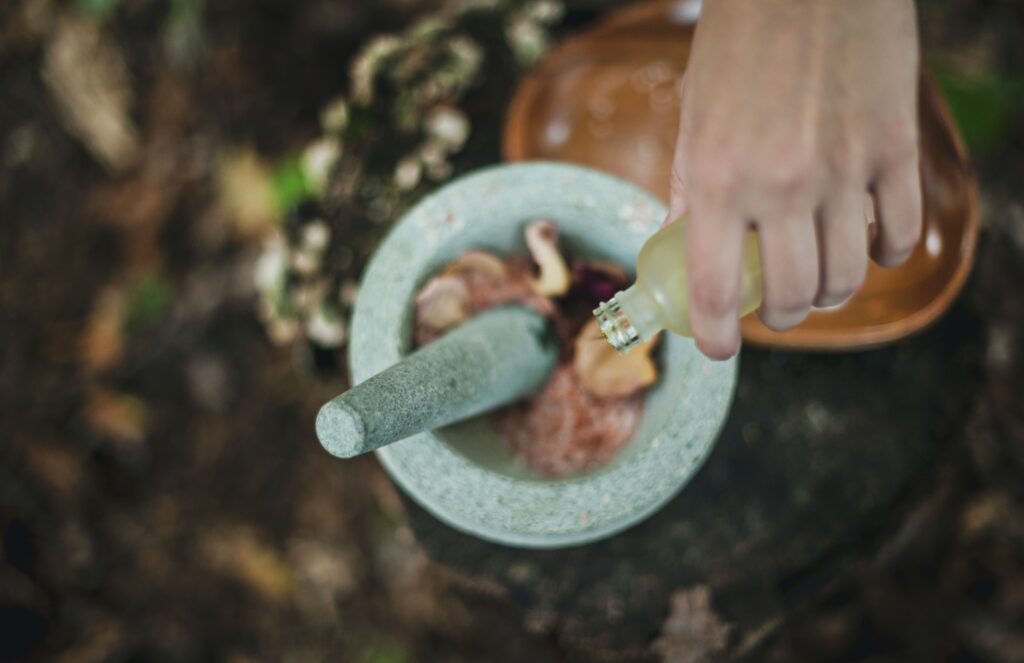
Herbs are natural, they can be found throughout the world and people use them everyday for food or medicinal purposes.
But does that make them safe all the time?
Some people have the misconception that because herbs are natural, they must be safe to use. For the most part, they are, but as with anything, precautions should be taken. In other words, do your research.
Today’s marketing and advertising world have given the word “natural” a meaning that is slightly mis-leading. The word has been used so much, that the definition has become very diluted.
So how do you use herbs safely?

(adj.) existing in or caused by nature; not made or caused by humankind.
Many plants look very similar, but they have different constituents and behaviors. So learning to identify herbs and plants is very important if you plan on using them.
Knowing the botanical names is also key. There are many herbs that have the same common name, but are totally different plants.
The common name of a plant is one that has caught on in a specific region over time. When people migrate to another region, they may associate a new plant with one they are familiar with from another region, even though the plant may be unrelated. This can cause a lot of confusion when talking about herbs.
Lets look at sage for example. There is culinary sage and there is sagebrush. Both are called sage, depending on the location. But they are totally different plants. The botanical name for culinary sage is Salvia officinalis, and sagebrush’s botanical name is Artemisia tridentata.

In looking at how herbs work, there are many variables. The preparation, the part of the herb used, the age of the herb, taken singly or with other herbs and is it being used topically or internally all help determine the safeness of the herb.
Herbs can be prepared safely in many ways. Some can be used in their raw form, like our culinary herbs, basil and parsley. They can be made into tinctures using either an alcohol or glycerin solvent. Herbs can also be dried and used in powder form. They can also be made into herbal oils and vinegars.
An herb used on its own can be safe, but when used with another herb at the same time, the results could be slightly different. This is because of the chemisty and synergy that happens with combining herbs. That doesn’t make it unsafe, but just know that it can behave differently.
Some herbs work better, or may be more potent, when paired with others. Other herbs are like helpers. They help other herbs do their job better or more effeciently. Pepper is a good example of this. Pepper helps many herbs become more absorbable into the bloodstream and cells. It is like the “transport” herb. You will see it partnered up with turmeric a lot.
Try to use just one herb at a time if possible when starting out.
When more than one herb is used and there are side-effects, how can you tell which herb is creating that side-effect? By using one herb, it is a lot easier to determine which herb is causing adverse effects, if there are any, or if you may be allergic to one.
By taking one at a time is an easy way to see which herbs are safe when being used for you.
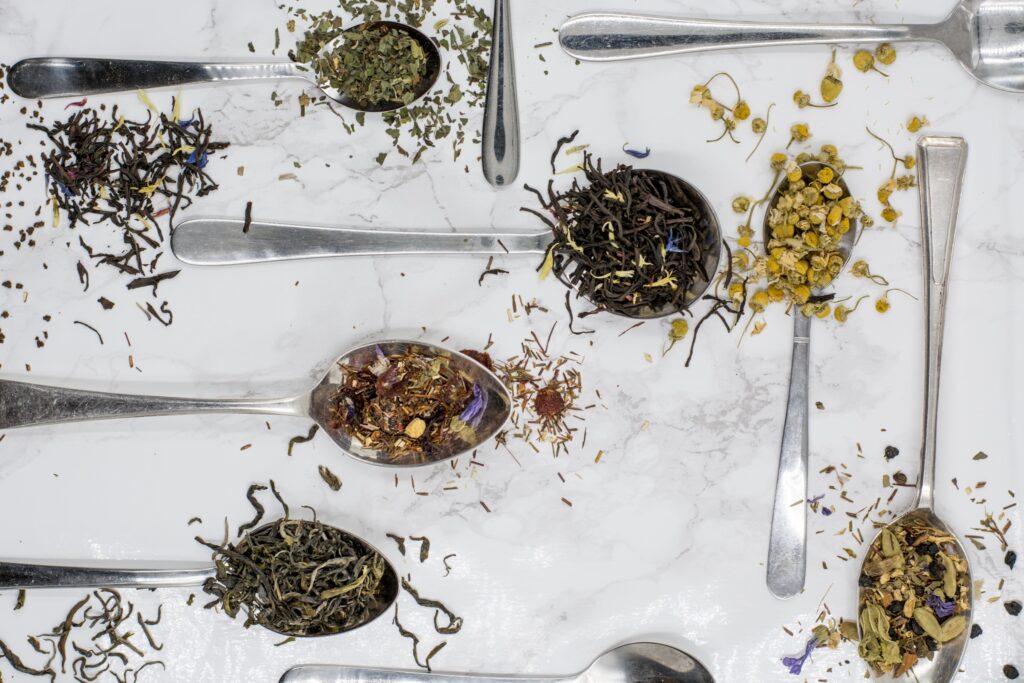
If you are unsure, seek out a professional to help navigate the safety of herbs. This is especially key if you are taking pharmaceuticals.
Most herbs can be used safely with allopathic medicine, but since not all combinations have been studied or tried, it is best to be cautious.
St. John’s Wort is probably the most well known for its interactions with pharmaceuticals. St. John’s Wort is very good at flushing out what should not be there. In other words, having pharmaceuticals in your body is not normal, so St. John’s Wort sees that and removes it.
So in recapping, make sure to:
By doing your own research, learning about herbs, listening to your body and taking precautions, you can know that you are using herbs safely.
To learn more about common myths in herbal medicine, check out my other blog posts:

I have been asked so many times “Has it been studied?”, referring to the herb or herbs I was recommending.
Herbs have been known for thousands of years for their healing properties. If they hadn’t worked, the knowledge would not have been passed down through the generations.
So it is a myth to say that plants have not been studied. They have been for thousands of years. Just not in the form of today’s “science”.
As the years go by, science is slowly picking up on the medicinal benefits of plants. Detailed studies are slowly being done with results verifying the knowledge from yesterday.
One reason we don’t see a lot of modern scientific studies on medicinal plants, is money. And this can be viewed from a few different angles. The first angle is fairly obvious, studies cost money and take time. Is the outcome worth the money that would be needed? That may depend on who you ask. Another angle is whether or not the study will produce results that lead to financial gain. That would be a reason for someone to hold a study, what can I get out of it.
But I feel that simple science is a start that will hopefully one day lead to more scientific studies.
I like to say it was “simple science” that has been used throughout the years to study and learn about plants and their medicinal qualities.
By simple science, I mean using your senses of taste, sight, touch and smell.
Most people can relate to smell and the outcomes of the aromas. For example, when you inhale a scent of lavender, most people will immediately feel a sense of calm come over them. Because of the popularity of lavender, more and more studies are being done as to how it affects us.
Taste is another sense that we use to determine what affect a plant may have on us. Take a bite of a dandelion leaf. What happens? Your mouth puckers up from the bitterness. Your taste buds then send a signal to your brain that triggers an increased production of digestive enzymes and stomach acid.
This is why salads are frequently served before a main meal, because the leafy greens, the bitters, get your digestive system going.
By seeing, touching, smelling and tasting, (my simple science), I can predict what will happen the next time I use a particular herb. I don’t necessarily need a scientific study to tell me that.
Though I do suppose you could include the sense of hearing too. For example, after your friend runs through a nettle patch and you now can hear him crying out in pain…
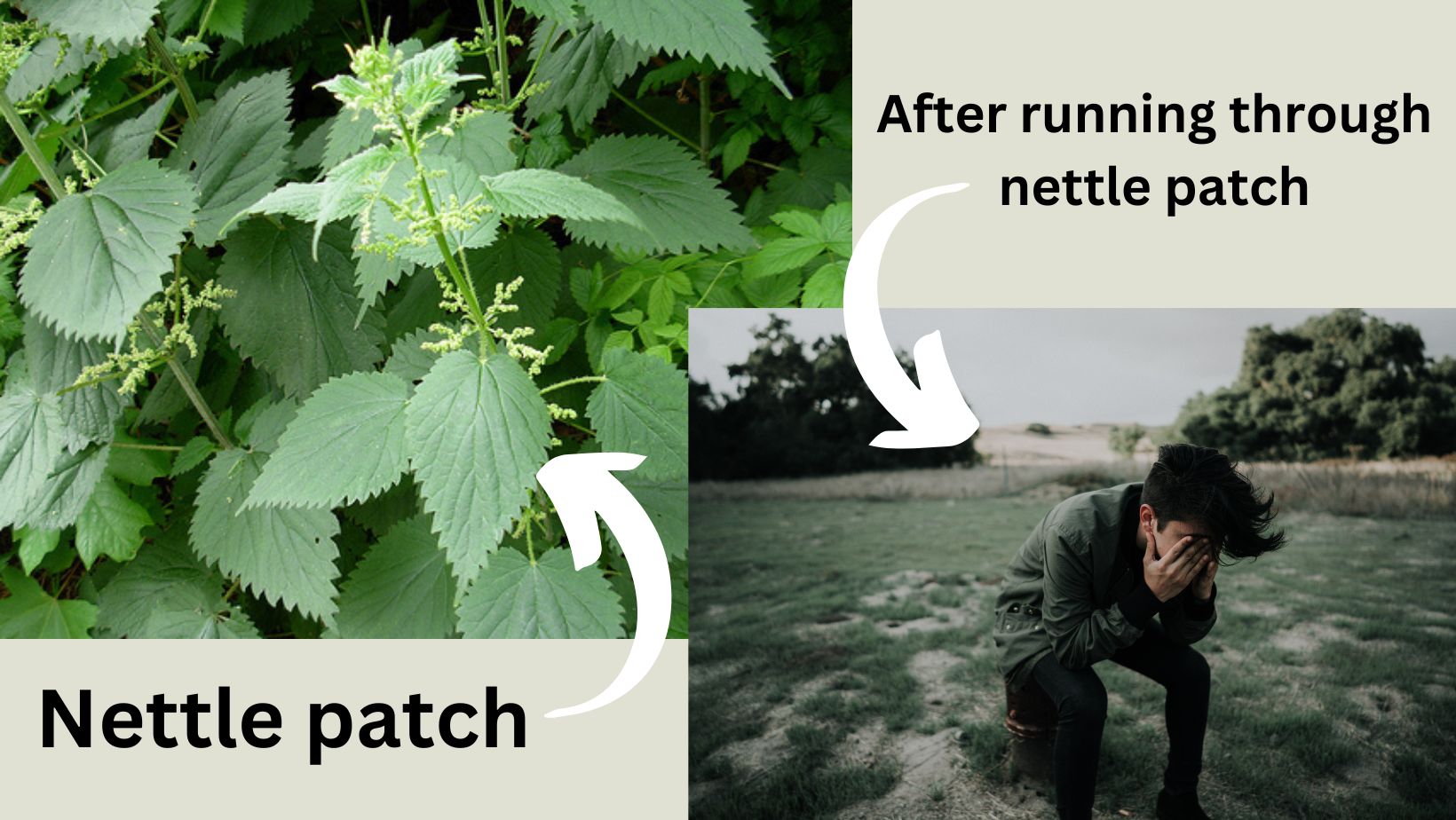
Knowing what to look for in studies can help you better understand if the study is actually answering the question or condition you have.
A few key things to look at are who funded the study, how was the study done and what were the variables. It is sad to say, but those funding a study sometimes are looking for an outcome to satisify them. From here, you want to look at how the study is done and the variables.
According to Dr. Patrick Jones, from the Homegrown Herbalist School of Botanical Medicine, you want to “recognize the hallmarks of good research: precision, repeatability, and the elimination of variables.”
Being able to repeat a study over and over with the same precision and variables to arrive at the same conclusion every time makes for a good study.
Here is a short video from Dr. Patrick Jones with more on how to differentiate good studies from bad studies.
So the myth that herbs haven’t been studied, is exactly that, a myth. Everyday we are in our own little world of study. By using our senses, we are learning what plants look like, smell like, feel like and taste like. As individuals, we may all notice something differently. For example, many people love cilantro, but others hate it because it tastes like soap to them.
So my point is, learn from what your senses tell you. That is your findings in herbal study.
To learn more about common myths in herbal medicine, check out my other blog posts:
In a world where everyone tries to be the same, being different is a breath of fresh air. And that is exactly what I need to be to make it in the herbal world. Standing out from the crowd is essential, because no one ever made a difference by being like everyone else.
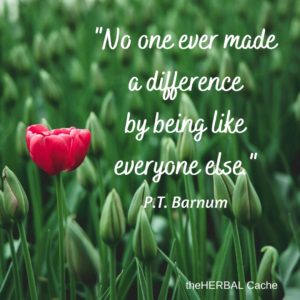
The answer is simple: be myself!
I can do this by being confident in who I am, being true to my values, and by sharing my knowledge with others.
Being confident in who I am is the foundation for everything else. If I don’t believe in myself, no one else will. So it’s important that I nurture a strong sense of self-worth. This doesn’t mean being egotistical or self-centered. It means having a healthy respect for myself and my abilities.
Being true to my values is also important. I need to stay true to what I believe in, even if it goes against the grain. If I’m not authentic, people will see right through me.
Finally, I need to share my knowledge with others. If I keep everything to myself, what’s the point? It’s important that I share my expertise with those who are interested. That way, I can make a difference in the herbal world.
Be different. Be unique.

Herbalism has really gained momentum over the past few years, with more and more people looking to nature for wellness.
So where does that put me as an herbalist?
Lost! LOL!
Recently, I have started to feel like I’m swimming in an ocean, and have no sense of direction. I’m focusing on this, and then I’m focusing on that. For an entrepreneur, that is not good.
But I want to learn everything about herbalism and all there is to know about plants!
Well, I know I can keep learning. But if I want to grow my herbal business, I need a plan. I need some form of direction so my customers, like you, know what the heck I’m offering them.
My first path I want to create will be focused on herbal beverages and cocktails.
I recently read a tidbit in an email from CommonWealth Herbs on infusing herbs in wine. That caught my eye, because I love wine. So I tried it.
After that, herbs and beverages just kept popping out at me. A botanical drinks course, books, recipes, etc. And so I thought, why don’t I focus on herbal beverages? This is an easy and wonderful way to add herbs to your diet.
After all, what could be more refreshing than a nice cold herbal tea on a hot summer day? Or a delicious cocktail made with fresh herbs?
There are many types of beverages I will be looking into. Some of those will be mead, wine, infusions, shrubs, tonics, switchels, ciders and more!
As I go along on my herbal journey, I will be sharing it with you too, so that you can take part in the wonderful world of herbal drinks and add them to your wellness cabinet.
Cheers!
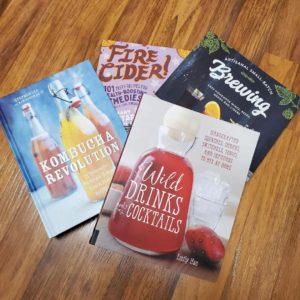
As with anything, the government likes to dip its hand into herbalism when it sees fit.
Don’t get me wrong, we need laws and guidelines to keep things in order. Herbalism is such a large part of our lives and it’s important to be informed about the laws and guidelines that surround it. But sometimes I feel the government takes on more then what it should.
So with this being said, with this pathway, I want to look at the history of herbalism and Big Pharma, and how they have competed throughout the years. I also will look at the current standings and bills trying to get through the legislature that involve the future of herbalism and supplements.
After all, we are the ones who use these products and we should have a say in how they are regulated.
I may only be one person, but I have to do what I can as an individual to keep herbalism safe and alive. And that means being aware of what is happening at the government level as well as what is happening in my backyard.

So my two focuses for the future are herbal beverages and the laws that affect herbalism. I don’t know how long this journey will be, but I know it will be interesting and thirst satisfying!
I will still be inserting other topics in here and there. Need to keep things interesting, right?
So I hope you will stick around for the journey.